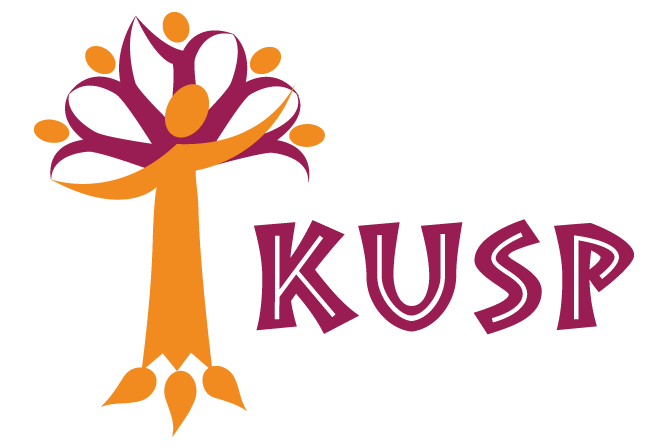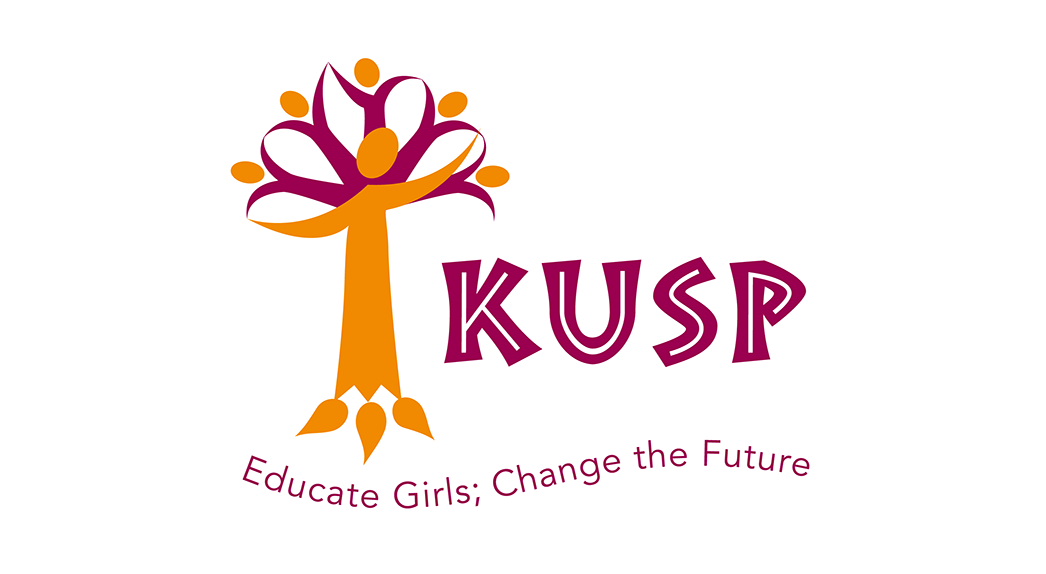Pictured above: KRMA Village and Savings Group in Kobulubulu, Uganda, with then future krma-USPartners President, Lois Stovall and husband David Smock, 2012
KUSP HISTORY
As its first project, krma-US Partners chose to partner with the courageous women of Kobulubulu Ribere Mon Association (KRMA), a savings collective in rural northeastern Uganda. Their history is compelling. We shared values of collaboration balanced with individual initiative, and the desire for economic sustainability. It all began with founder Lois Stovall’s visit to Kobulubulu in 2012.
Why krma-US Partners?
By Lois Stovall, president, krma-US Partners
Visiting Kobulubulu, Uganda, in 2012
Changed My Life
It all began in the summer of 2012. I am married to an Africa expert, David Smock, but had never been to the continent myself. “Take me to Africa,” I told him. “You choose which country." He chose Uganda. The plan was to go on safari and, to satisfy my curiosity, visit a women’s cooperative. I had read how they were transforming families and communities all over Africa. Little did I know that this one would transform me!
Our host, Veronica Eragu, who had visited us in Washington, D.C. and is a national leader in Uganda, took us to her tribal village of Kobulubulu. There I listened to 20 women share the story of the founding of their collective, known as KRMA. They told me how the original seven women met in a prayer group in the refugee camp, where they fled from Joseph Kony’s vigilantes, and how their discovery of community had changed their lives.
As they struggled to find ways to provide for their children and the elderly parents of absent husbands, they discovered the power of community. Together they helped each other carry large jerry cans of water from a local well to sell to a make-shift shop owner. They shared their earnings to provide food for their children and elder kin and, as a result, the women began to feel the power and control over their lives as producers.
Since then, their lives have never been the same.
Their story was moving. But Uganda receives significant support from various charities and NGO’s in the United States. Surely this rural community in eastern Uganda could call on many organizations for help. What led me to found yet one more charity serving people in Uganda was that this community is very remote, the roads at time impassable, with no wide-spread internet, electricity, or running water. The schools are considered a hardship assignment and teachers can request a transfer after two years. They receive few resources from the network of NGO’s and charities based in the far away capital of Kampala. Yet the people of Kobulubulu want for their children what we want for ours: opportunities for education, job security, and adequate means to acquire resources for the community.
Returning from that first trip to Uganda, I formed krma-USPartners with the help of my colleague Lindsey Holaday, and we launched its first program, the Cassava Project, in 2013 after raising funds from those similarly touched by the stories of the women farmers.
Following the Project's successful completion in 2020, we embraced education as our primary focus. Instead of being known as KRMA, with our educational focus we are now known as KUSP, although our formal name remains krma-USPartners. We launched our collaboration with the schools of Kobulubulu.
KUSP expanded the vision of economic sustainability, the importance of education and the empowerment of women and girls to encompass all of the underserved regions of Kobulubulu Sub-County in Kaberamaido District. We are now working with 4 schools attended by over 2500 children. We have provided funds for 13 girls to pursue the next steps on their educational journeys beyond what is offered in Kobulubulu. We have returned every year since that first year in 2012, and now that Covid 19 is preventing travel, we have an especially competent team of Ugandans who work to fulfill the collaborative goals of KUSP and the government-sponsored public schools of Kobulubulu.
KRMA HISTORY
The women of the Kobulubulu Ribere Mon Association (KRMA) live in Kobulubulu, Uganda, a rural community in northeastern Uganda. The women lived in a collection of family compounds without electricity or running water, but with a shared history of loss and recovery.
They shared what little they had and gave each other comfort and faith that life would improve
2005 – 2013
KRMA’s story began during a surge in Joseph Kony’s Lord’s Resistance Army (LRA) incursions into the northeastern regions of Uganda in 2005. For nearly 20 years, the LRA had been kidnapping Ugandan adults and children, forcing the boys to serve as soldiers and the girls as sex slaves.
In 2005, when the LRA attacked Kobulubulu, the villagers fled to an internally displaced persons camp for protection. The camp quickly became over-crowded and aid was limited by LRA attacks on relief vehicles. With little food and insufficient clean water, conditions in the camp deteriorated, leading to poverty, hunger, sexual violence and lawlessness.
As suffering grew, a group of eight women from Kobulubulu began meeting every evening to pray for the safety of their husbands and help each other through the terrible struggles they were experiencing. The women also helped each other find work, pooling their wages and putting whatever coins were left over into communal savings and gave each other comfort and faith that life would improve.
When the Ugandan army finally chased the LRA out of Uganda and it was safe to return to their village, the women found that their houses had been burned and all their property had been lost or looted.
Still facing loss, poverty and difficulty, the women agreed to continue to collaborate by rebuilding their houses together, helping each other find work, saving money together and sharing concerns and comfort. They met weekly and soon created a formal village savings group, KRMA, with the following objectives:
To improve household income
To ensure food security and livelihood
To ensure faster conflict resolution and reconciliation within the community through peaceful means.
Many women say that the group changed their lives by teaching them to be responsible and to manage money, to be independent and to work cooperatively, to be disciplined and caring, and to believe that prayers and hard work pay.
2013 – 2020
In 2012 Lois Stovall visited the women of KRMA in their village and asked them how she could help them. She listened and talked to them for a year, discussing and creating a plan. She returned to the United States and founded krma-US Partners, a 501c3 charity, to support the agricultural vision born out of the partnership with KRMA.
In 2013 krma-US Partners launched its first project, The Cassava Project.
CASSAVA PROJECT
In 2005, the eight founders of KRMA’s village savings group survived the rampage of Joseph Kony’s Lord’s Resistance Army by discovering that if they worked together and shared resources, they could avoid starvation and care for their children. Now these women and others who joined them are moving from lives of subsistence to a cooperative approach to commercial farming.
The women's goals were to improve the lives of 22 KRMA members, their families, and the surrounding community, and to send all their children to school.
With the twin goals of economic empowerment and education, the first joint project between KRMA and krma-US Partners was the establishment of a cassava farm. The women each expanded their previously uncultivated land allotment (uncultivated due to lack of resources) by two acres, for a total of 44 acres, a medium-to-large-size single-crop farm for that region.
The women used a staggered production cycle of 22 acres newly planted while 22 acres were ready for harvest. They raised a high quality, reliable supply of cassava that had an established market in a key geographic area. Kobulubulu borders an area that has little commercial farming and food supplies can be sporadic.
krma-US Partners worked with KRMA to develop a five-year budget, a business plan and a contractual agreement.
The business plan included re-investing a portion of revenues over and above funds needed for their children’s school fees into the project.
This reinvestment enabled KRMA to move steadily towards self-sufficiency and full responsibility for their Cassava Project with each subsequent harvest cycle. Their success gradually decreased the amount of money needed from krma-US Partners so that within five harvest cycles the Cassava Project became self-sufficient.
krma-US Partners believes this is an innovative program design that counters the dangers of dependency on foreign aid. Clearly, it is not aid or micro-lending, nor is it a loan. Instead, this is a re-investment model.
Rather than pay back the funds provided by krma-US Partners, the women were required to re-invest their profits into their own business. This contractual agreement enabled KRMA to help themselves and then help others in their region. Working as a group rather than as individuals raised the income of 22 families with over 100 children at the same time.
Planting and harvesting 44 acres required additional workers and created jobs, as did the process of taking the cassava from seed to harvest to market. The Cassava Project took seven years to reach its objective of self-sustainability.
As the women farmers of the Cassava Project developed their business capacities for discipline, organizational oversight, teamwork and accountability, krma-US Partners continued to raise funds and identified new projects in Kobulubulu Sub-County.
When KRMA attained self-sufficiency in 2020, there were sufficient resources for our organization to transition to working on the educational needs in the larger Kobulubulu sub-county, focusing on the community’s four public schools. Since we were no longer focused on KRMA, we no longer refer to ourselves as KRMA as a shortened version of krma-USPartners. Instead, we are known locally in Kobulubulu as KUSP.






